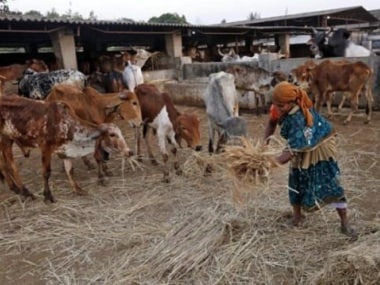Earlier this year, when a controversy was raging surrounding the ban of cattle for slaughter in open markets, Firstpost argued that the Centre was fighting a losing battle , and predicted that sooner or later, the government would have to reverse its decision. Less than six months later, that is precisely what has happened. On Thursday, the Narendra Modi-led government said that it will withdraw the ban on sale of cattle for slaughter in animal markets. [caption id=“attachment_4235447” align=“alignleft” width=“380”]  Representational image. Reuters[/caption] What forced the government to roll back its decision? The reports said it did so based on feedback from the state governments. That is surely one reason. But, there are other major lessons that might have caused this: One, the rule was nothing but a backdoor cattle slaughter ban although the notification didn’t say so explicitly. Banning the sale of cattle for slaughter in open market places meant 80-90 percent business disappeared instantly. Cattle slaughter businesses primarily source cattle from open markets and not from the farmer directly. Hence, the move was seen as Centre’s smartly designed rule to put an end to the meat trade by industry lobbies, leading to massive protests. India is one of the leading exporters of cattle meat and millions are employed in the meat industry and related works such as tanning and leather works. An immediate backlash was not unexpected. Secondly, it threatened to break the back of the rural economy where the farmer typically get rid of his old, unused cattle by selling it to slaughter houses, and use that money to buy new cattle or invest it in the purchase of farm equipment. Typically, this is done by taking the unused cattle to nearby mandis. This process was halted because of the poorly thought out plan.
If the farmer is unable to sell his unused cattle, it meant he needed to incur additional expense to take care of the animal which is also not giving any revenue. This adds to his financial burden.
Third, the backdoor cattle ban was seen as a move to impose the ideological preferences of the ruling party on the rest of India. It gave room for allegations from political rivals that the government is slowly pushing its “Hinduvta agenda” by forcing vegetarian food habits on the country. The Centre was asking for trouble. Fourth, the whole issue took a Centre versus states turn, with states like Kerala and Meghalaya passing resolutions against the Centre’s law, asserting that they will not implement it. Karnataka, West Bengal and Tripura governments have also said the rule will not be implemented in these states citing their constitutional rights. Fifth, a legal debate was gaining momentum, where the government couldn’t defend its stance strongly. Essentially, regulating livestock markets and cattle trade is a state affair, while the Centre has the right only to intervene on matters of animal welfare. But as reported by The Indian Express, Fahim Qureshi, the Hyderabad-based lawyer who moved a petition in the Supreme Court, has pointed out that Section 11 of the Prevention of Cruelty to Animals Act does not categorise slaughter of animals for food as cruelty on the condition that it is not accompanied by pain and suffering. Contradicting orders from Madras and Kerala high courts on the issue complicated the issue, and the Supreme Court later asked for clarifications from the Centre. It may be that the government had noble intentions behind the rule — to bring in discipline in cattle trade and prevent cattle theft, but it could have done so without shocking the meat trade industry and non-vegetarians. In fact, most of these rules are already in place in a notification under the Prevention of Cruelty to Animals (PCA) Act, 1960. By doing this, the government could have averted losing face on the issue. For the Modi government, the writing was on the wall from Day 1 on this issue.


)




